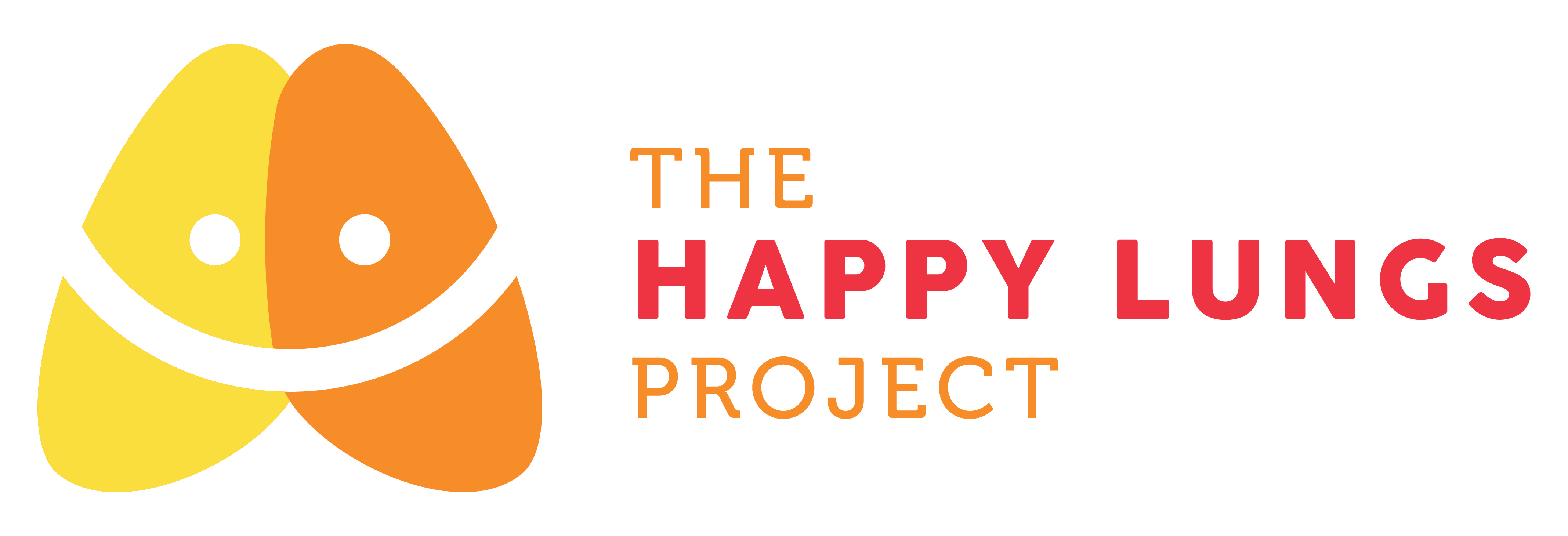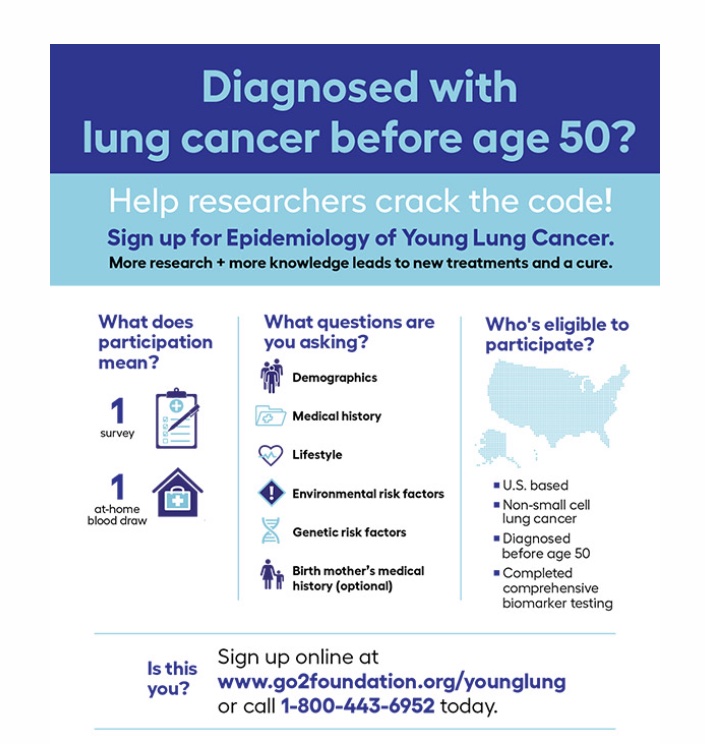Epidemiology of Young Lung Cancer is a clinical study for patients who were diagnosed with non-small cell lung cancer (NSCLC) before the age of 50 which investigates why an increasing number of young people are developing lung cancer. Investigators would like to look into potential environmental and childhood exposures, studying lung cancer diagnosis by age, and other risk factors for lung cancer in persons under age 50. The study also aims to understand the differences between lung cancer in young and old patients including the presence of genetic mutations.
Lung cancer is not only a smoker’s disease, and there is increasing evidence that many young patients with NSCLC have never smoked, being this more predominant in women1. RET cancer patients are needed to understand the epidemiology and potential causes of the disease.
This innovative study is co-lead by Dr. Jorge J. Nieva, associate professor of clinical medicine at the University of Southern California’s Keck School of Medicine in Los Angeles and sponsored by the Addario Lung Cancer Medical Institute (ALCMI) in collaboration with the GO2 Foundation for Lung Cancer.
What does participation mean?
If eligible, the study involves an online survey of approximately 200 questions (demographics, medical history, active and passive smoking history, early life exposures, residential and occupational history, menstrual and reproductive history (if applicable), and diet and physical activity). In addition, you will provide a small sample of blood. You will be able to choose your own provider to collect the sample or we can arrange for the sample to be collected at your home.
Find in the link below more details of the study and the formulary to participate.
https://alcmi.net/research/eoylc/
- Siegel DA, Fedewa SA, Henley SJ, Pollack LA, Jemal A. Proportion of Never Smokers Among Men and Women With Lung Cancer in 7 US States. JAMA Oncol. 2021;7(2):302–304.


